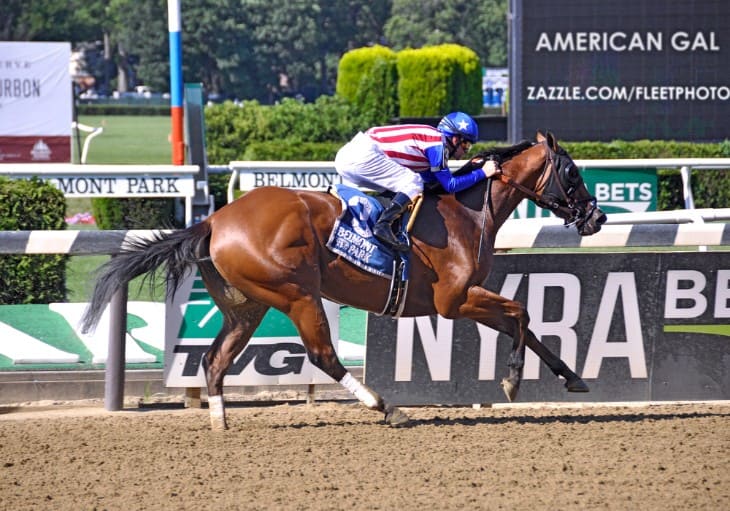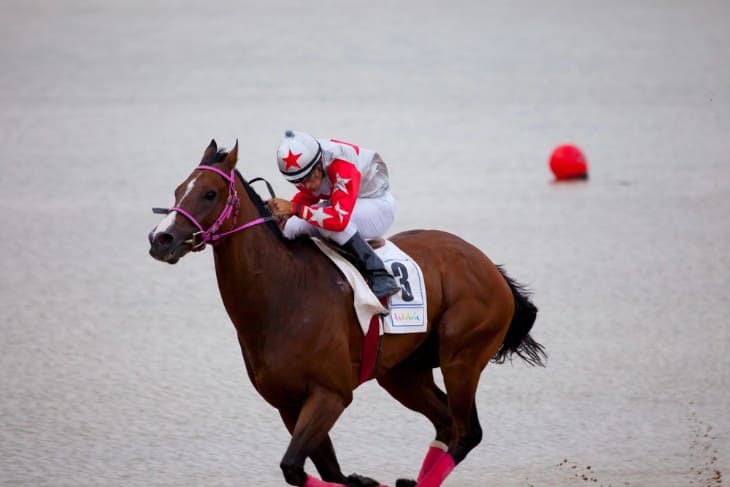- Profiling the Race: Distance, Hurdles, and Venue
- Legendary Winners and Their Stories
- Training Regimens for Arkle Trophy Contenders
- The Economic Impact of the Arkle Challenge Trophy on Horse Racing
- The Role of Jockeys in Winning the Arkle Challenge Trophy
- Breeding Champions: Pedigree Analysis of Arkle Winners
- The Role of Technology in Modern Horse Racing
- Public Reception and Media Coverage of the Arkle Challenge Trophy
- Comparing the Arkle Challenge Trophy to Other Major Horse Races
- Conclusion
The Arkle Challenge Trophy, a fixture in British horse racing, traces its roots back to the early 20th century. Named in honour of Arkle, a legendary Irish thoroughbred racehorse, the trophy represents not just a prize but a symbol of equine excellence. Arkle, renowned for his extraordinary racing career in the 1960s, set a standard for steeplechase performance, making the trophy a fitting tribute.
The race itself, held annually at the Cheltenham Festival, has been a key event in the National Hunt racing calendar. Its establishment marked a significant development in the sport, providing a platform for showcasing the agility and speed of novice chasers. Over the years, the Arkle Challenge Trophy has evolved, but its core essence, celebrating the spirit of National Hunt racing, remains unchanged.
Profiling the Race: Distance, Hurdles, and Venue
The Arkle Challenge Trophy is characterised by its challenging course, designed to test the mettle of novice chasers. The race spans approximately two miles (about 3.2 kilometres), featuring thirteen fences that demand both precision and agility from the competing horses. This distance and obstacle combination has been meticulously calibrated to provide a rigorous challenge suitable for horses that are relatively new to chasing.
Held at the Cheltenham Racecourse, the event takes place on the Old Course, a venue celebrated for its undulating terrain and unique fence design. This course layout not only enhances the race's difficulty but also adds to its prestige. The Cheltenham Racecourse, with its rich history and distinguished reputation, serves as an apt setting for a race of such significance in the National Hunt season.
Legendary Winners and Their Stories
The Arkle Challenge Trophy has been won by a host of remarkable horses, each with their own unique story. These champions have not only demonstrated exceptional athletic prowess but also captured the hearts of racing enthusiasts. For instance, the 1980s witnessed the rise of Desert Orchid, a grey whose speed and stamina dominated the race. His victories were not just wins; they were performances that elevated the status of the trophy.
Another notable winner was Sprinter Sacre, known for his impressive comeback after a heart condition. His victory in 2013 was more than a triumph; it was a testament to resilience and determination. These stories of legendary winners are not merely about winning a race; they're about overcoming challenges and embodying the spirit of the sport.

Training Regimens for Arkle Trophy Contenders
Training for the Arkle Challenge Trophy requires a tailored approach, focusing on both physical endurance and mental agility. Each horse's regimen is meticulously planned, often involving:
- Conditioning: Intense physical training to build stamina and strength, crucial for navigating the demanding Cheltenham course.
- Fence Work: Specialised training to hone jumping skills, ensuring precision and agility over the fences.
Mental preparation is equally critical. Trainers work on developing a horse's focus and adaptability, essential traits for coping with the race's high-pressure environment. The training period leading up to the Arkle Challenge Trophy is rigorous, pushing both horse and trainer to their limits. This preparation not only aims at physical readiness but also instils a winning mindset, a crucial component for triumph in this prestigious race.
The Economic Impact of the Arkle Challenge Trophy on Horse Racing
The Arkle Challenge Trophy significantly influences the financial landscape of horse racing. This race, being a high-profile event at the Cheltenham Festival, generates considerable economic activity. Firstly, it attracts substantial betting interest, with millions of pounds wagered annually. This betting frenzy not only benefits bookmakers but also contributes to the broader economy through taxes and related spending.
Secondly, the Arkle Challenge Trophy bolsters the horse breeding and trading industry. Winning or even participating in such a prestigious race can substantially increase a horse's value. This effect extends to the stud fees for breeding and can have a long-term impact on the pedigree lines. The race thus plays a vital role in shaping the economic aspects of the horse racing industry.
The Role of Jockeys in Winning the Arkle Challenge Trophy
The role of jockeys in clinching the Arkle Challenge Trophy cannot be overstated. Their skills and decisions are critical to the outcome of the race. Jockeys must exhibit:
- Strategic Acumen: Understanding the racecourse and making tactical decisions on pacing and positioning.
- Physical Fitness and Resilience: Maintaining balance and control over the horse, especially over fences.
Jockeys form a unique bond with their mounts, understanding their temperaments and capabilities. This relationship is crucial in navigating the challenges of the Cheltenham course. The jockey's experience and intuition often make the difference in tight races, turning potential defeats into triumphs. Their role is a blend of athleticism, strategy, and psychological insight, all essential for success in the Arkle Challenge Trophy.
Breeding Champions: Pedigree Analysis of Arkle Winners
The breeding of champions for the Arkle Challenge Trophy involves a sophisticated understanding of equine genetics and pedigree. Examining the lineage of past winners reveals certain traits that are often associated with success in this challenging race. These traits typically include:
- Speed and Agility: Genetic predispositions that contribute to a horse's ability to navigate the course efficiently.
- Stamina and Strength: Essential for enduring the demanding distance and fences of the race.
Pedigree analysis is not just about identifying these traits; it's about understanding how they can be reliably passed down through generations. Breeders often study the bloodlines of past Arkle winners, seeking to replicate their success. This analysis informs breeding decisions, guiding the selection of sire and dam pairings to produce offspring with the potential to excel in the race. The science of breeding for the Arkle Challenge Trophy is a delicate balance of genetics, probability, and a deep understanding of horse racing dynamics.

The Role of Technology in Modern Horse Racing
Technology has profoundly influenced modern horse racing, including the preparation and execution of the Arkle Challenge Trophy. Key technological advancements impacting the race include:
- Data Analysis and Biometrics: Utilising data-driven insights to optimise training and performance. Sensors and wearables track a horse's vital statistics, providing valuable information for conditioning and health management.
- Racecourse Technology: Innovations in track maintenance and safety, ensuring optimal racing conditions and minimising the risk of injury.
The integration of technology in horse racing has revolutionised various aspects, from training methods to spectator experience. In training, detailed biometric data enables more personalised and efficient regimens. On race days, advanced camera systems and timing technologies enhance the accuracy of results and the viewing experience for fans. The use of technology in the Arkle Challenge Trophy reflects the broader trend of digital transformation in sports, blending tradition with modern innovation for a safer and more competitive race.
Public Reception and Media Coverage of the Arkle Challenge Trophy
The Arkle Challenge Trophy enjoys significant public attention and media coverage, reflecting its status in the horse racing world. The race's popularity stems from its exciting nature and the high calibre of participating horses and jockeys. This popularity is evident in the extensive coverage the event receives across various media platforms, including television, online streaming, and social media. The coverage not only includes the race itself but also stories and interviews with trainers, jockeys, and horse owners, providing a comprehensive view of the event.
Public engagement is further amplified by the traditional and social media buzz surrounding the race. Fans actively discuss predictions, favourites, and outcomes on social media platforms, creating a vibrant online community. The media also plays a crucial role in educating the public about the nuances of the race, from the history of the trophy to the specifics of the current event. The Arkle Challenge Trophy's media presence thus extends its reach and significance beyond the racing community, drawing in a wider audience and enhancing its profile.
Comparing the Arkle Challenge Trophy to Other Major Horse Races
When contrasted with other significant horse races, the Arkle Challenge Trophy holds a unique position. Key comparisons include:
- Type of Race: Unlike flat races, the Arkle is a steeplechase, emphasising not just speed but also jumping ability.
- Horse Age and Experience: The Arkle is specifically for novice chasers, differentiating it from races open to older or more experienced horses.
In comparison to the Grand National or the Epsom Derby, the Arkle Challenge Trophy offers a distinct challenge due to its focus on novice chasers. This focus means that horses and jockeys are often encountering the high-pressure environment of a major race for the first time, adding an element of unpredictability and excitement. The race's shorter distance compared to the Grand National also results in a faster pace, offering a different kind of thrill for spectators. In the landscape of British horse racing, the Arkle holds a special place, celebrated for its unique blend of challenge and opportunity for emerging talent.
Conclusion
The Arkle Challenge Trophy holds an enduring legacy in the world of horse racing. It's not just a race; it's a celebration of equine athleticism, a test of skill for jockeys and trainers, and a beloved event for fans. The trophy's history, marked by legendary horses and thrilling races, has cemented its place in the annals of horse racing lore.








